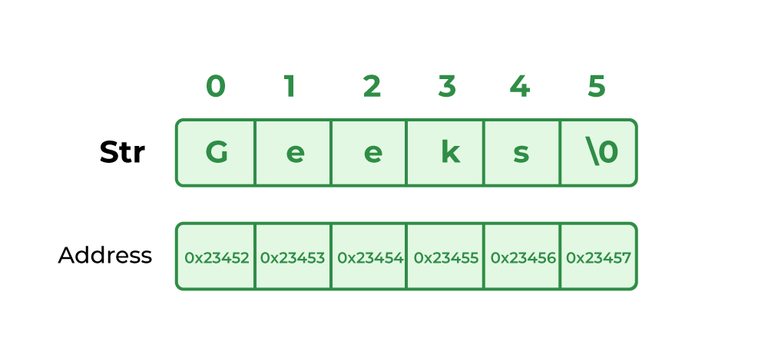Why Are Strings Immutable in Java? Necessary Expertise for Developers
Why Are Strings Immutable in Java? Necessary Expertise for Developers
Blog Article
What Is Immutable Strings and Just How It Functions
In the world of shows, recognizing the principle of unalterable strings is extremely important for creating durable and protected applications. Unalterable strings describe strings that can not be altered after they are produced, guaranteeing information stability and predictability within the code. This basic principle plays a vital function in numerous programs languages and offers an unique technique to taking care of data. By discovering the complexities of how unalterable strings work, one can uncover a world of benefits and opportunities that can elevate the top quality and performance of software program advancement.
The Basics of Unalterable Strings
Immutable strings, as a fundamental principle in programs, are personality sequences that can not be altered as soon as they are developed. This means that once a string is assigned a value, that value can not be altered. In languages like Python and Java, strings are immutable objects, bring about numerous effects in terms of memory monitoring and information integrity.
One of the key benefits of immutable strings is that they supply a feeling of safety in data adjustment. Considering that the material of an unalterable string can not be modified, it ensures that the original data stays undamaged, minimizing the danger of unintentional adjustments throughout program execution (Why are strings immutable in Java?). This building also simplifies debugging procedures, as developers can rely on that once a string is defined, its value will certainly not be inadvertently changed
When a new string is created based on an existing one, instead than modifying the initial string, the new value is saved separately. Overall, comprehending the fundamentals of immutable strings is vital for understanding programming ideas and optimizing code performance.
Benefits of Unalterable Strings
Structure upon the safety and security and efficiency benefits of unalterable strings, their advantages reach boosting code reliability and simplifying concurrent programs tasks. By being unalterable, strings can not be changed after creation, which gets rid of the threat of unexpected modifications in the information they keep. This intrinsic immutability guarantees that when a string is produced, its value remains constant throughout the program's implementation, decreasing the chances of insects brought on by unforeseen modifications.
Furthermore, unalterable strings add to code reliability by making it much easier to reason regarding the state of a program. Considering that strings can not be changed, designers can rely on that a string will certainly constantly hold the very same worth, simplifying debugging and maintenance efforts. This predictability leads to more reliable and steady codebases.

Implementation in Shows Languages
Within numerous shows languages, the unification of unalterable strings is an essential aspect that influences how data is taken find more info care of and manipulated within code structures. The implementation of unalterable strings differs across various shows languages, with each language providing its own systems to sustain this concept.

On the other hand, languages like C and C++ do not have integrated support for immutable strings. Developers in these languages need to manually implement immutability by enforcing regulations within their code to stop direct adjustments to string things.
Ideal Practices for Collaborating With Unalterable Strings
When managing unalterable strings in shows languages like Java and Python, sticking to best methods makes certain protected and reliable information manipulation. One of the essential ideal practices is to use StringBuilder or StringBuffer rather of directly manipulating strings, especially when website link dealing with comprehensive concatenation procedures. These courses supply mutable choices for string control, assisting to stay clear of unnecessary memory allotments and improving efficiency.
Additionally, when functioning with delicate information such as passwords or API tricks, it is essential to avoid keeping them as simple message in immutable strings. Utilizing safe storage space devices like char varieties or specialized libraries for dealing with sensitive information aids alleviate security dangers linked with unalterable strings.
Real-world Applications and Examples
Checking out practical applications of immutable strings in different industries discloses their significant impact on data honesty and system integrity. In the healthcare sector, unalterable strings play a crucial reference role in guaranteeing the safety and privacy of patient data. By protecting against unapproved modifications to sensitive info such as clinical documents and prescriptions, unalterable strings aid keep compliance with rigorous personal privacy regulations like HIPAA.
Monetary establishments also benefit from the immutable nature of strings to boost the protection of client data and transaction documents. Unalterable strings assist prevent fraud and unauthorized alterations to financial info, giving a robust protection against cyber dangers and making sure the depend on and confidence of customers.

Conclusion
Best techniques for working with immutable strings consist of preventing direct adjustments and making use of approaches that return brand-new string items. Real-world applications of immutable strings consist of information file encryption, caching, and string adjustment jobs.
Unalterable strings refer to strings that can not be altered after they are created, making sure information integrity and predictability within the code. When a brand-new string is created based on an existing one, instead than modifying the initial string, the new worth is kept independently.In languages like Java and Python, strings are unalterable by default, implying that once a string item is produced, its value can not be changed - Why are strings immutable in Java?. Best techniques for working with immutable strings consist of preventing direct adjustments and utilizing methods that return new string objects. Real-world applications of immutable strings include data encryption, caching, and string control tasks
Report this page